Alzheimer’s and Brain Awareness Month 2021
HEARING LOSS AND DEMENTIA
“I used to worry about my dad. I live out of state and call home weekly. On the phone, Dad didn’t seem like himself. He was aloof and sometimes unresponsive. I used to worry that he wasn’t following me on the phone or participating at family gatherings because of memory loss, dementia, or something else. But surely enough, once he could hear well, he was back to his old self. He smiled, laughed, and engaged in conversation just like he used to. Hearing aids were a game changer. They literally brought him back to life.”
During hearing aid consultations, family members often express concerns about hearing loss and the implications it can have on cognition and/or dementia. When individuals aren’t able to hear properly, they may seem disengaged, unresponsive, or they may respond inappropriately. Whether these changes in behavior result from hearing problems or reduced brain function is sometimes difficult to determine.
Hearing loss is one of the most common problems in the aging community. The prevalence of hearing loss increases with age, affecting 40% of people over 50 years old and roughly 71% of people over 70 years old. Untreated hearing loss can lead to difficulties when communicating and laxed participation in normal daily activities and social engagements. Withdrawal from these activities can ultimately lead to isolation, loneliness, and cognitive decline.
Hearing loss has been identified as potentially the most modifiable risk factor for dementia. One study found that age-related hearing loss is associated with an increased rate of cognitive decline and an increased risk of developing dementia. In addition, the likelihood for developing dementia increases with the severity of the hearing loss (Slade 2020).
WHERE DOES THE BREAKDOWN BEGIN?
So where exactly does hearing breakdown begin? The most common form of hearing loss seen in the aging community is formally known as “sensorineural” hearing loss. This hearing loss is either “sensory” or “neural” in nature. Sensory indicates that the hearing loss is caused by damage to the small sensory hair cells that are housed in the cochlea, the organ of hearing. The “neural” portion refers to the neurons that send the auditory message along the hearing nerve to the brain.
When the cochlea is not functioning properly, it is less effective at decoding and relaying signals to the hearing nerves. This compromised signal results in diminished neural activity. Both sensory and neural changes disrupt the brain’s ability to comprehend speech properly. This lack of input and change over time can alter how the brain allocates its resources. Think of the saying, “If you don’t use it, you’ll lose it!” I often explain to my patients that hearing is not just an “ear” thing, it’s an “ear-to-brain” connection!
THE EAR-TO-BRAIN CONNECTION
As we age, connections between brain cells can become lost or damaged. This disconnection is often referred to as cognitive decline. Research in hearing loss and cognitive decline has gained significant momentum over the past few years. Many studies continue to investigate the correlations and causal relationships between hearing loss and dementia. However, such study proves challenging since the brain and auditory systems are both quite complex. Even so, researchers have discovered evidence suggesting that changes are taking place at the level of the brain when hearing loss is present, particularly in the aging population (Slade et al. 2020).
Interestingly enough, research has demonstrated changes at the level of the brain in individuals with sensorineural hearing loss. One study that performed imaging on older adults to assess the brain’s activity while listening to sentences of varying speech rates found that individuals with sensorineural hearing loss experienced changes in brain activity while listening to faster talking rates than slower and simpler talking rates. Additionally, the study discovered reduced grey matter volume in the hearing portion of the brain–the portion responsible for processing information (Peele 2011)! Overall, people with hearing loss should focus on complex tasks because they are more profitable for the brain. In the real world, this equates to increased hearing effort, aka listening fatigue, when placed in those challenging listening environments. THINK: restaurant, large family gatherings, auditoriums, airports, etc.
Another study explored the association between hearing loss and dementia in the general population. They discovered that hearing loss is associated with significant increased risk of dementia, especially in patients aged 45 to 64 years. Their findings suggest that implementing early hearing protection, screenings, and hearing aids may help reduce this potential risk factor for dementia (Liu 2019).
WHAT CAN YOU DO?
So, what can you do to help yourself or your family members?
- Schedule a hearing test! It will NEVER hurt to have your hearing evaluated to establish a baseline. If we detect hearing loss, we can discuss options for moving forward.
- If you use hearing aids, wear them whenever you are awake. Keeping the brain stimulated, even in quiet situations, is important. The brain needs to hear all sounds to stay sharp and active–this includes the sink running, newspaper rustling, and feet stepping on the floor.
- Stay up to date on screenings and re-evaluate your hearing every one to two years. Hearing loss can happen gradually, and your brain might not know what it’s missing!
- If your family member struggles with dementia or Alzheimers, please know many hearing solutions can improve communication. Reach out to us. We can walk through various hearing technologies or accessories that will suit the needs of your loved one.
Since hearing loss is a modifiable age-associated condition linked to dementia, the Lancet International Commission on Dementia, Prevention, Intervention, and Care has estimated that treating hearing loss may decrease the risk of dementia by nine percent. The Hearing & Dizziness Clinic empowers patients and advocates that they treat hearing loss sooner rather than later!
During Alzheimer’s and Brain Awareness Month, we want to shed light on such a prevalent health topic. Experiencing Alzheimer’s, dementia, or any brain injury can be extremely challenging for our patients and their loved ones. At The Hearing & Dizziness Clinic, we have the patience, compassion, and empathy to walk through these challenges with you. Our goal is to ensure you and your loved ones are heard while helping you hear your best.
REFERENCES
Liu, Chin-Mei, and Charles Tzu-Chi Lee. “Association of hearing loss with dementia.” JAMA network open 2.7 (2019): e198112-e198112.
Peelle, Jonathan E., et al. “Hearing loss in older adults affects neural systems supporting speech comprehension.” Journal of neuroscience 31.35 (2011): 12638-12643.
Slade, Kate, Christopher J. Plack, and Helen E. Nuttall. “The Effects of Age-Related Hearing Loss on the Brain and Cognitive Function.” Trends in Neurosciences (2020).
Uchida, Yasue, et al. “Age-related hearing loss and cognitive decline—The potential mechanisms linking the two.” Auris Nasus Larynx 46.1 (2019): 1-9.

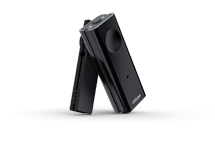 Streamer Solutions:
Streamer Solutions: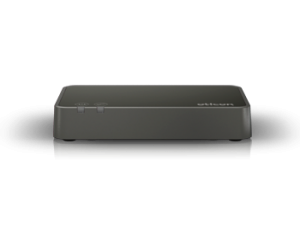


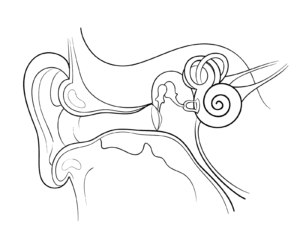
 We’re blessed that we can give the gift of hearing to our patients daily.
We’re blessed that we can give the gift of hearing to our patients daily.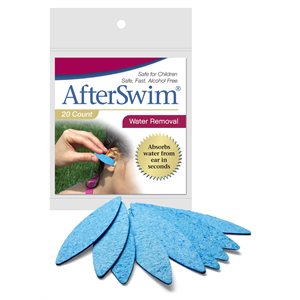
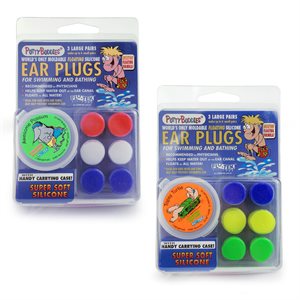

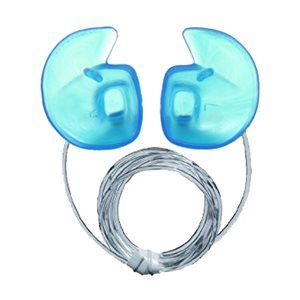
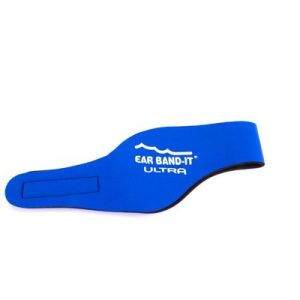
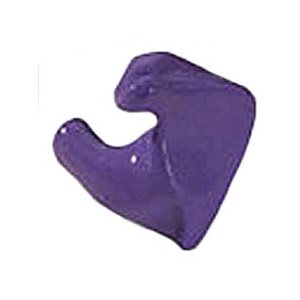 These molds are made just for you. We take a cast of your ears and send it to the manufacturer where they will create custom swim earmolds. These molds completely block the ear and ear canal to ensure no water will enter. It is made from a material that is able to float above water so you will not lose them while swimming. Perfect for children and adults to protect their ears from water while swimming or in the shower.
These molds are made just for you. We take a cast of your ears and send it to the manufacturer where they will create custom swim earmolds. These molds completely block the ear and ear canal to ensure no water will enter. It is made from a material that is able to float above water so you will not lose them while swimming. Perfect for children and adults to protect their ears from water while swimming or in the shower.  Ten years ago I decided to go into private practice. I was contemplating moving to Amherstburg and did not want to commute to work. Many of you might remember my first office location at 206 Sandwich Street South, in the blue house next to Naples. When I first opened, it was just me. My goal was to see one patient a day, then two a day. Bit by bit the office got busier and we had to move.
Ten years ago I decided to go into private practice. I was contemplating moving to Amherstburg and did not want to commute to work. Many of you might remember my first office location at 206 Sandwich Street South, in the blue house next to Naples. When I first opened, it was just me. My goal was to see one patient a day, then two a day. Bit by bit the office got busier and we had to move. While Amherstburg Audiology was growing, I had a second clinic in Essex. I tried to call it “Amherstburg Audiology & Hearing Aids – Essex Location”, but that name just never took off. In fact, people were confused and rightfully so. As we got busier in Amherstburg, Tim Hortons also got busier. Eventually we had to move again because there just was not enough parking for our patients.
While Amherstburg Audiology was growing, I had a second clinic in Essex. I tried to call it “Amherstburg Audiology & Hearing Aids – Essex Location”, but that name just never took off. In fact, people were confused and rightfully so. As we got busier in Amherstburg, Tim Hortons also got busier. Eventually we had to move again because there just was not enough parking for our patients.
 We are excited to be offering group workshops at our Essex and Amherstburg locations! There is a lot of information given to you at your hearing aid fitting appointment, which can make it a little overwhelming at times. A group workshop is an hour long session where our hearing health professionals go over details about your hearing loss, your new hearing aids and aural rehabilitation or retraining your brain to understand speech.
We are excited to be offering group workshops at our Essex and Amherstburg locations! There is a lot of information given to you at your hearing aid fitting appointment, which can make it a little overwhelming at times. A group workshop is an hour long session where our hearing health professionals go over details about your hearing loss, your new hearing aids and aural rehabilitation or retraining your brain to understand speech. We’re please to announce that Bernice McKenzie is part of the DrCliffAud Approved Provider Network!!
We’re please to announce that Bernice McKenzie is part of the DrCliffAud Approved Provider Network!! Do you know someone who’s life would be improved by improved hearing? WE WANT TO KNOW!
Do you know someone who’s life would be improved by improved hearing? WE WANT TO KNOW!